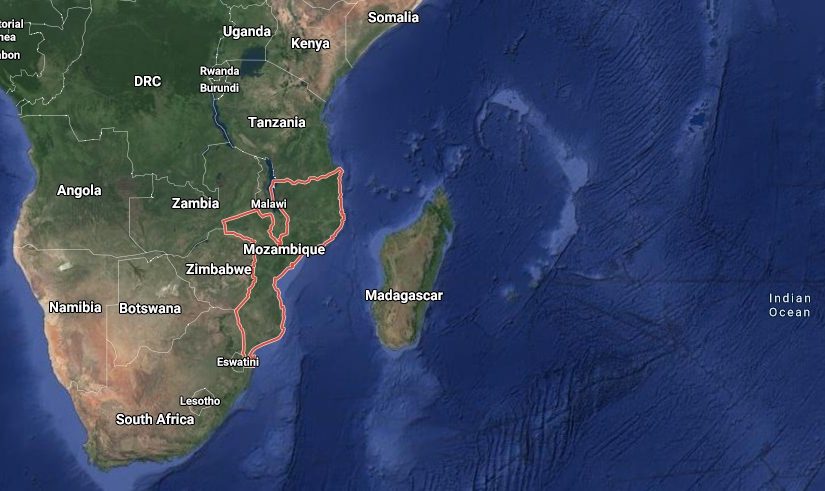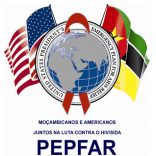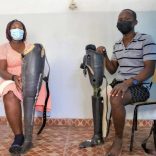Saudi Arabia sends lifesaving date shipment to feed 100,000 conflict-affected Mozambicans
Mozambique: Peace requires elite pacts, says OMR; more war reports – BY Joseph Hanlon

Image: Google Maps
In this issue
The war
- Peace requires elite pact
- Lessons of history
- Tanzania turning away refugees
- Namakande recaptured again by insurgents; ongoing fighting
Other news
- Mozambique & dictators; dry season bulletin; historian Liesegang dies; Renamo DDR
- OMR: peace requires elite pacts within Frelimo and in military
Ending the Cabo Delgado war requires elite pacts between the oligarchs and big beasts in Cabo Delgado and a similar pact in the military. This implicitly recognises that that big men in Cabo Delgado must be allowed to profit from resources and big men in the military must continue to profit from commissions and contracts, but that enough money must be released to solve local grievances about jobs and to allow enough for soldiers to be fed and adequately equipped.
This is the effect of recommendations of OMR (Observatorio do Meio Rural, Rural Obsservatory) in the summary of their 1 June webinar Military insecurity and the future of gas (Portuguese and English). It is very brave putting into a publication what many people recognise – that in Mozambique today it should be accepted that the big beasts and lower level cabritos (goats) must eat, but internal agreements need to be negotiated so that profits are shared in a way that not everything is eaten.
The two final seminar recommendations are: “Realization of a regime pact that goes beyond the government and Frelimo, considering the issue of Cabo Delgado as a national imperative. Realization of a pact between military forces, listening to the different military sensitivities on issues that go beyond its sphere, openly discussing issues of income, benefits and war deals, aspects that have constituted a clear obstacle on the military front.” The first is a call fro two internal negotiations, between the oligarchs and big beasts of Cabo Delgado to agree a sharing system, while also leaving something for local people and job creation. The second puts on the table “openly discussing issues of income, benefits and war deals” and thus demands an agreement between the big men in military and security of how to share commissions, while leaving enough to buy food and equipment for soldiers, and end the bigger fight between army and police. It is perhaps the first time a serious report has put on the table elite deals to regulate greed.
The seminar report also has a good short summary of global gas producers and market, Mozambique gas including Temane (Inhambane), income, and the security crisis.
Comment: a possible model The United States has a long history of managing what some call corruption. A relevant model was Seattle on the US west coast. The city wanted an image of high morality but many of its citizens wanted entertainment, so it developed its “tolerance policy.” For 50 years (1920s through 1960s) the Seattle Police Department vice squad and patrol officers collected bribes to allow activities considered “vices” to continue. Officers openly collected payments of cash from prostitutes, gambling operators, bar operators who served after hours or who catered to gay and lesbian customers, etc. Money was passed up the chain of command. From the local police officer on up, each person gave half of the money they received to their superior, up to the highest level. Most important, there was an established tariff for each activity and a detailed accounting system so that no one was cheated. The bribes set were low enough to ensure that the illegal businesses remained profitable. And as it was organised by the police, it kept out mafia and other criminal protection rackets.
Because New Orleans police were low paid, they had an organised system of hiring out off-duty police for extra patrolling or as guards. In Boston planning applications had to be approved by the fire department and they were careful not to allow anything dangerous, but they would only read the application if there was a $5 note after each page.
Nor is it just the US. The UK has its “cronies list” – a list of friends of the Conservative party who have priority in winning government contracts. Many places – and aid agencies – have informal rules that 10% or 15% kickbacks on contracts are allowed.
The crisis in Cabo Delgado is caused by the free market. The big beasts and cabritos can charge anything they like and impose onerous conditions. Police and soldiers can demand money, mobile phones and sexual favours because there is no agreed tariff. And there are paralysing fights, notably between police and army, instead of cooperation.
Ending the war in Cabo Delgado means recognising and, by agreement, regulating the illegal free market. Some form of the Seattle model could be agreed.
- More reports on the war
Crisis Group podcast: The Insurrection in Mozambique’s Cabo Delgado (3 June). Crisis Group Deputy Africa Director Dino Mahtani gives a very good description of the local roots and history of the insurgents, as well as regional connections and the “tenuous links” with Islamic State.
Sam Jones & Finn Tarp: Mozambique’s difficult decade: three lessons to inform next steps The Conversation (31 May).
READ: Analysis: Mozambique’s difficult decade: three lessons to inform next steps
“At the start of the last decade, Mozambique’s prospects looked stellar. … Mozambique was a darling of the international development community, enjoying significant direct support to the government budget, and investment possibilities in the natural resources sector seemed bright. By 2016, much of this lustre had been lost. … It’s time to recognise that the development strategy of this period has not delivered.” They continue: “Even though massive private investment inflows have continued, real economic growth has fallen sharply. Poverty and other indicators of deprivation have also remained stubbornly high.” Jones and Tarp draw three lessons: “Don’t believe the hype”, “Foreign investment is a means, not an end” and “Don’t forget the poor”.
Comment: Finn Tarp is a former director of UNU-Wider and Jones is research fellow at Wider, and the article can be read as a mea culpa or the beginning of an apology. It wasn’t just “international partners and government officials” who believed the hype and, as Tarp and Jones say, “sung the same tune”. It was academics as well, led by Wider, who rejected the warnings from civil society, journalists and other academics for two decades. jh
Joseph Hanlon: Turning Mozambique into a mafia, resource-cursed state The Round Table: The Commonwealth Journal of International Affairs (5 June) The greed and corruption of the Frelimo leaders play a central role in the resource curse. But they could not have done it without the encouragement and support of the international community.
Makaita Noel Mutasaa & Cyprian Muchemwabc: Ansar Al-Sunna Mozambique: Is It the Boko Haram of Southern Africa? Journal of Applied Security Research (24 Feb, £35) Two Zimbabwe-based academics look at the similarities of the Mozambican insurgency and Boko Haram in Nigeria. “Both Boko Haram and Al-Sunna Mozambique can be described as aggrieved groups that feel denied the opportunity to be heard freely or to be listened to … and both are pitched against suppressive state authority which use terrorism to respond to terrorism. … In both cases, military reaction has had a negative effect of alienating local populations.” Their recommendations to end the war are:
- Engagement and dialogue
- Stop using terrorism to fight terrorism
- Create employment for the youth
- Invest in education and skills development
- De-centralise development
- SADC must play a more strategic role
War news
Tanzania continues to refuse entry to Mozambican refugees. In May alone, at least 3,800 people fleeing from Palma were taken 200 km inland to the Unity bridge and then sent back into Mozambique, according to UNHCR. UNHCR calls it “systematic forced return” and called on Tanzania to respect the right of asylum. A recent report released by an institution close to the Tanzanian Ministry of Foreign Affairs acknowledged that the government has deported 7,552 people that crossed the border from Mozambique. World Food Programme has begun to distribute food aid to expellees at Negomano, the border village in Mueda district. (LUSA, Zitamar, Intelyse)
Namakande recaptured again by insurgents. The military appears to be having trouble with it push east from Mueda. Namakande, 30 km southeast of Mueda, is the district town of Muidumbe and is on the main road to Macomia. It was first taken by insurgents in November 2020, retaken by the Defence and Security Forces (FDS), retaken by insurgents, recaptured by FDS on 23 May, retaken by insurgents a week later, and attacked by military helicopters on 4 June.
Fighting for the coast of Macomia district continues. Macomia town, 50 km inland, is in government hands, local residents are returning, and on 1 June the district administrator Tomas Badae led a public celebration for the local holiday, the 56th anniversary of its elevation to the status of a town.
But insurgents largely control the coastal zone of Macomia and coastal waters, and fighting continues. There was fighting north of Quiterajo near an insurgent base along the Messalo River which is the boundary between Macomia and Mocimboa da Praia districts on 1 June; 23 hostages escaped from insurgent camps on the banks of Messalo River. Further south near Pangane, government forces killed some insurgents on the farm owned by Alberto Chipande; the insurgents were caught roasting his cattle.
Attacks on coastal villages 25 km north and south of Palma, Quiwia and Olumbi, early this month have caused people to flee, including people already displaced from Palma.
Other news
A monthly dry season hydrological bulletin is being published by the Public Works Ministry and is very detailed, like their flood ones. I am posting them on http://bit.ly/Moz-flood21
The Maputo, Umbeluzi, Buzi, Pungoe and Licungo basins are experiencing below-normal flows, down 10% to 70% of the average year. The basins of Umbeluzi, Incomati, Limpopo, Govuro, Save, Pungoe and South Zambezi, Licungo, Ligonha, Megaruma, Montepuez and Messalo, register very low moisture indices.
Historian Gerhard Liesegang died 18 May, age 80. He came to Mozambique in 1969 to do his PhD and never left, and became the expert on the Gaza empire and colonial occupation of Gaza. Mentor and teacher to nearly all of Mozambique’s historians, he was an open and supportive man. When Frances Christie and I wrote our book on the great flood of 2000, it was Liesegang who dug through colonial archives and reports from a colonial administrator in Chibuto to show that only the 1915 Limpopo flood was worse than 2000.
Mozambique did not oppose war crimes and genocide in the UN. The UN General Assembly on 18 May overwhelmingly approved “The Responsibility to Protect (R2P) and the prevention of genocide, war crimes, ethnic cleansing and crimes against humanity” (A/75/L.82), but Mozambique did not participate in the session or vote, CDD (20 May) suggests.
Belarus and Mozambique held their third joint meeting on 3 June, according to the Belarusian Ministry of Foreign Affairs. The heads of the Belarusian and Mozambican delegations, Deputy Minister of Foreign Affairs Nikolai Borisevich and Deputy Minister of Foreign Affairs and Cooperation Manuel Jose Goncalves “exchanged views on interaction in international organizations.” Last August, thousands took to the streets of Belarus to protest against rigged elections, hoping to curb the nation’s strongman ruler, Alexander Lukashenko. But his hard line won and many opponents have been jailed or fled the country. In an unprecedented action, on 23 May Belarus forced a Ryanair commercial flight overflying the country to land, so journalist and activist Roman Protasevich could be arrested. The EU has banned Belarusian carriers from its airspace and airports, and banned planes from flying over Belarus, and has imposed other sanctions. But Russia is backing Lukashenko.
Renamo DDR proceeds slowly. Since the beginning of the Renamo DDR (disarmament, demobilisation and reintegration) process in 2018, six bases have been closed completely and another three have been dismantled, demobilising 2,307 former Renamo fighters, 44% of the 5,220 former guerrillas set to be demobilized. DDR will move to Renamo’s bases in Tete this month. The EU is funding the programme with €62 mn. EU ambassador in Maputo, Antonio Sanchez-Benedito Gaspar, said he expects the DDR to be completed by the end of 2022. But there are serious funding issues, and demobilised Renamo soldiers have not received their grants in three months. (Intelyse 6,9 June, Zitamar 7 June)
By Joseph Hanlon













Leave a Reply
Be the First to Comment!
You must be logged in to post a comment.
You must be logged in to post a comment.